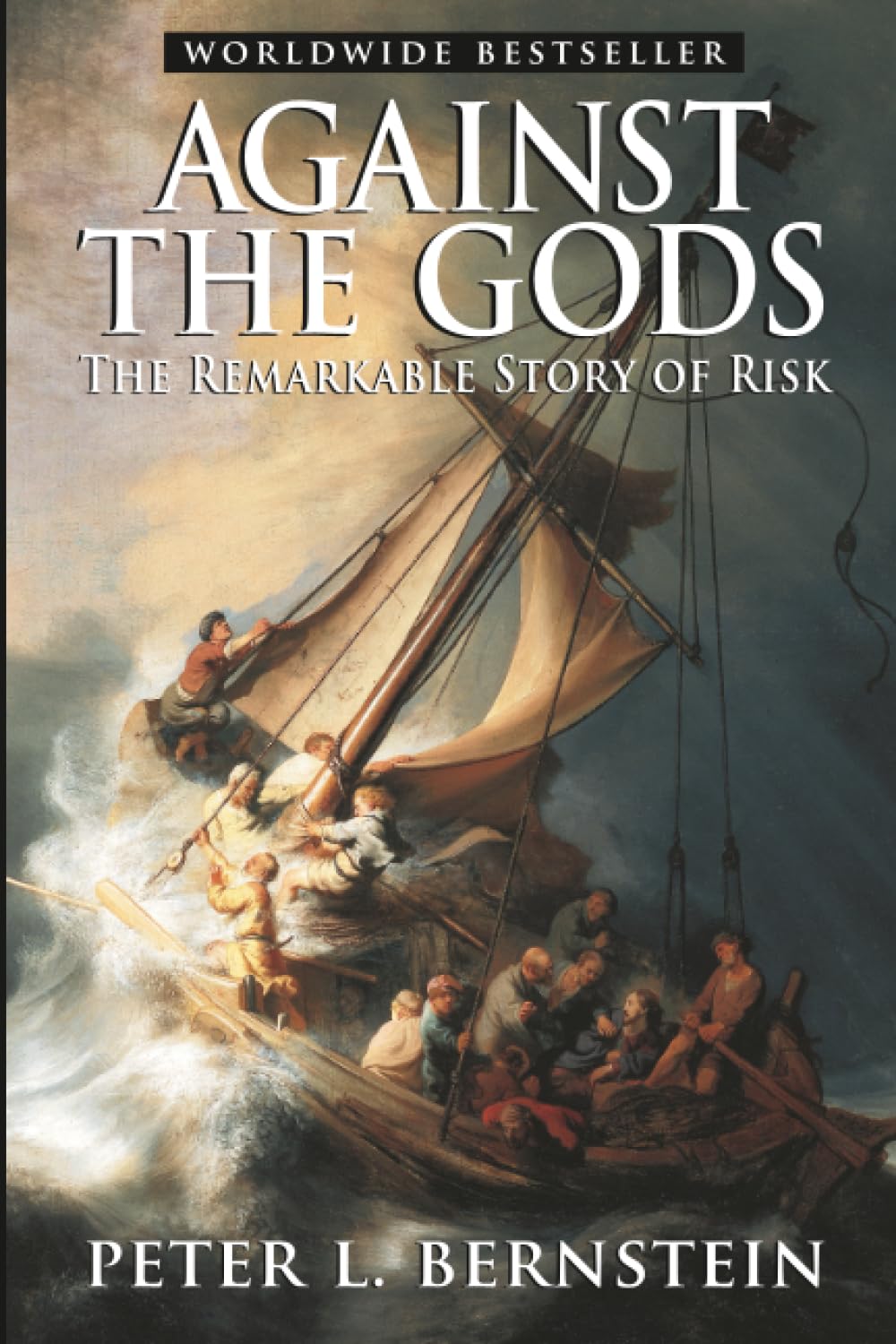Found in 5 comments on Hacker News
mkempe · 2018-02-22
· Original
thread
I strongly recommend "Against The Gods: The Remarkable Story of Risk" (1996) [1] for a fascinating, historical perspective on people's growing understanding of probability and statistics over the last few millennia.
The author, Peter Bernstein [2], was brilliant and his other works also merit your attention if you are interested in economics and finance.
[1] https://www.amazon.com/Against-Gods-Remarkable-Story-Risk/dp...
melling · 2015-10-07
· Original
thread
No, they used stochastic to reduce risk and find patterns in the markets.
http://www.amazon.com/Against-Gods-Remarkable-Story-Risk/dp/...
You prefer the old fashion way?
Aren't startups gambling with other people's money? What's the success rate there? 1 in 100?
henrik_w · 2015-07-17
· Original
thread
Ha! Just this morning I was reading about the development of probability theory and risk management in "Against the Gods" by Peter Bernstein [1]. I just finished the chapter on the Bernoullis contributions. Interesting read!
[1] http://www.amazon.com/Against-Gods-Remarkable-Story-Risk/dp/...
sonabinu · 2012-12-26
· Original
thread
There is a great book out there called ' Against the Gods ' by Peter Bernstein. http://www.amazon.com/Against-Gods-Remarkable-Story-Risk/dp/... It has the fantastic story of how a lot of mathematical computations are a product of the effort to quantify risk.


0 - https://www.amazon.com/Against-Gods-Remarkable-Story-Risk/dp...